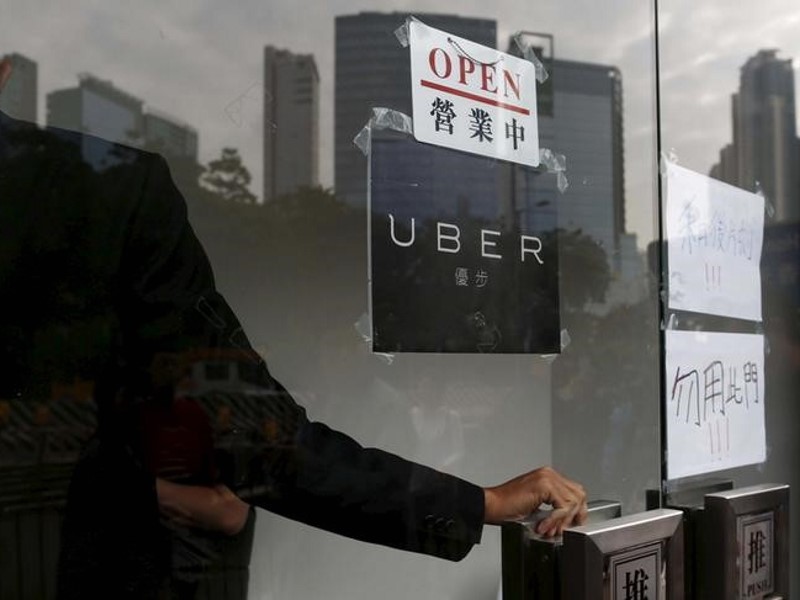China Regulator Says Didi, Uber Deal Will Need Mofcom Approval

Didi's acquisition of Uber's China operations, announced on Monday, will create a roughly $35 billion (roughly Rs. 2,33,551 crores) ride-hailing giant and could raise monopoly concerns as Didi claims an 87 percent market share in China. Uber China is the second largest player.
Mofcom, one of China's antitrust regulators, said at a news briefing that the two firms need to seek approval for the deal to go ahead. It had been unclear previously whether such a filing would be required as both firms are loss-making in China.
"Mofcom has not currently received a merger filing related to the deal between Didi and Uber," ministry spokesman Shen Danyang said. "All transactors must apply to the ministry in advance. Those that haven't applied won't be able to carry out a merger" if they fall under applicable antitrust and merger rules, he said.
Didi Chuxing did not immediately respond to a request for comment. Uber did not respond to requests for comment.
Didi and Uber have been in a fierce battle in China, spending billions of dollars to subsidise rides and win users.
Other players, however, could step up competition.
Jia Yueting, head of LeEco, the parent of smaller ride-hailing rival Yidao, said in a social media post the firm would offer steep rebates to attract passengers to help avoid there being a monopoly in the market.
"Yidao will soon kick off an even more aggressive cashback campaign," according to a translation of Jia's posting provided by a LeEco spokeswoman.
Regulations released last week that take effect on November 1 legitimize ride-hailing, but prohibit services from offering rides below cost.
© Thomson Reuters 2016
Catch the latest from the Consumer Electronics Show on Gadgets 360, at our CES 2026 hub.
Related Stories
- Samsung Galaxy Unpacked 2025
- ChatGPT
- Redmi Note 14 Pro+
- iPhone 16
- Apple Vision Pro
- Oneplus 12
- OnePlus Nord CE 3 Lite 5G
- iPhone 13
- Xiaomi 14 Pro
- Oppo Find N3
- Tecno Spark Go (2023)
- Realme V30
- Best Phones Under 25000
- Samsung Galaxy S24 Series
- Cryptocurrency
- iQoo 12
- Samsung Galaxy S24 Ultra
- Giottus
- Samsung Galaxy Z Flip 5
- Apple 'Scary Fast'
- Housefull 5
- GoPro Hero 12 Black Review
- Invincible Season 2
- JioGlass
- HD Ready TV
- Laptop Under 50000
- Smartwatch Under 10000
- Latest Mobile Phones
- Compare Phones
- Samsung Galaxy A07 5G
- Vivo Y500i
- OnePlus Turbo 6V
- OnePlus Turbo 6
- Itel Zeno 20 Max
- OPPO Reno 15 Pro Mini 5G
- Poco M8 Pro 5G
- Motorola Signature
- Lenovo Yoga Slim 7x (2025)
- Lenovo Yoga Slim 7a
- Realme Pad 3
- OPPO Pad Air 5
- NoiseFit Pro 6R
- Xiaomi Watch 5
- Acerpure Nitro Z Series 100-inch QLED TV
- Samsung 43 Inch LED Ultra HD (4K) Smart TV (UA43UE81AFULXL)
- Asus ROG Ally
- Nintendo Switch Lite
- Haier 1.6 Ton 5 Star Inverter Split AC (HSU19G-MZAID5BN-INV)
- Haier 1.6 Ton 5 Star Inverter Split AC (HSU19G-MZAIM5BN-INV)

















